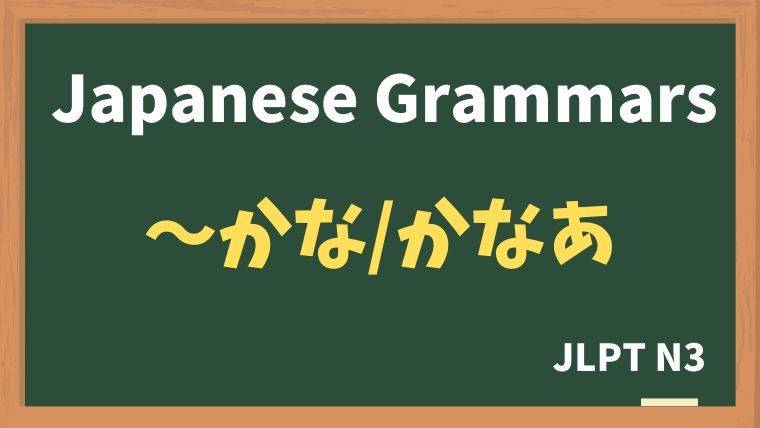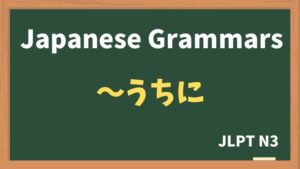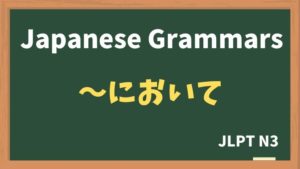
Explanation:〜かな / 〜かなあ
fa-check-circleMeaning
"I wonder"
Used to express a sense of uncertainty or to wonder about something. They often convey a feeling of doubt or curiosity and can be used in both informal and casual conversations.
fa-check-circleForm
V(plain form)+ かな / かなあ
イA(plain form)+ かな / かなあ
ナA(plain form)+ かな / かなあ
N(plain form)+ かな / かなあ
fa-check-circlePoints
- Expressing Uncertainty or Doubt: "〜かな" and "〜かなあ" are used when the speaker is unsure about something and is pondering or wondering aloud.
- Softened Tone: These expressions soften the sentence, making it less direct and more contemplative. This makes them useful in polite or casual settings.
- Can Be Used Alone or in Dialogue: "〜かな" and "〜かなあ" can be used as standalone thoughts or in response to others in a conversation.
fa-check-circleJLPT Level
N3
Sample sentenes
今日の飲み会にトムさんは来るかなあ。
I wonder if Tom will come to today’s drinking party.
ジェームスさんまだ来ませんね。何かあったのかなあ。
James hasn’t come yet. I wonder if something happened.
空がくもってるし、あとで雨が降るかなあ。
The sky is cloudy. I wonder if it will rain later.
トンカツが3,000円!?おいしいのかなあ。
Tonkatsu is 3,000 yen!? I wonder if it is delicious.
あのレストラン、毎日たくさんの人が並んでいるし、おいしいのかなあ。
Many people line up at that restaurant. I wonder if it is delicious.
この道であってるかなあ。
I wonder if this is the right road.
Vocabulary
| Japanese |
English | |
| 飲み会 | のみかい | drinking party |
| 並ぶ | ならぶ | to line up |
| 道 | みち | road |






